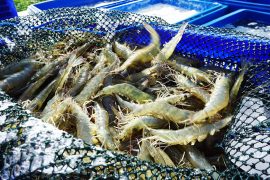
Eating algae instead of meat products to save the planet
As more individuals seek alternatives to traditional animal-based diets, a new study conducted by the University of Exeter has shed light on an unexpected source of protein: eating algae. This research is the first of its kind to demonstrate that two commercially available algal species are not only protein-rich but also support muscle remodeling in young, healthy adults.
This study highlights the potential of algae, specifically spirulina and chlorella, as rich protein sources capable of supporting muscle growth in healthy adults. The discovery is especially pertinent for those seeking alternatives to animal-derived proteins for environmental and ethical reasons.
Eating algae is a promising alternative
Researcher Ino Van Der Heijden from the University of Exeter emphasizes the significance of this discovery.
“Our work has shown algae could become part of a secure and sustainable food future. As the trend of reducing meat consumption for ethical and environmental reasons grows, the interest in nonanimal-derived and sustainably produced protein sources is also increasing. Algae emerge as a promising novel protein source in this context,” he explains.
Traditionally, animal-derived proteins are known for their ability to stimulate muscle protein synthesis, a crucial process for muscle growth and repair. The study suggests that algae can replicate this process, offering an eco-friendly alternative. Spirulina and chlorella, in particular, are not only protein-rich but also abound in essential micronutrients.
Algae as a nutritional powerhouse
To substantiate these findings, the University of Exeter conducted a detailed study involving thirty-six healthy young adults. This randomized, double-blind trial compared the effects of spirulina and chlorella with a recognized high-quality, nonanimal protein source – fungal-derived mycoprotein.
Participants engaged in resistance exercise and then consumed a protein-rich drink. Researchers collected and analyzed blood and muscle samples over four hours post-exercise and feeding, focusing on amino acid concentrations and muscle protein synthesis rates.
The study revealed that all protein sources increased blood amino acid concentrations, with spirulina showing the most rapid and highest peak responses. Moreover, each protein type effectively stimulated muscle protein synthesis in both rested and exercised muscles, with exercised muscles exhibiting higher synthesis rates.
In summary, this pioneering research by the University of Exeter positions spirulina and chlorella on par with high-quality nonanimal proteins, marking a significant step in the quest for sustainable, ethical protein sources.
Algae, with its robust ability to stimulate muscle protein synthesis, stands as a viable alternative for those seeking nonanimal-derived protein options, paving the way for more sustainable and environmentally conscious dietary choices.
The full study was published in the Journal of Nutrition.
—–
Like what you read? Subscribe to our newsletter for engaging articles, exclusive content, and the latest updates.
Check us out on EarthSnap, a free app brought to you by Eric Ralls and Earth.com.
—–













